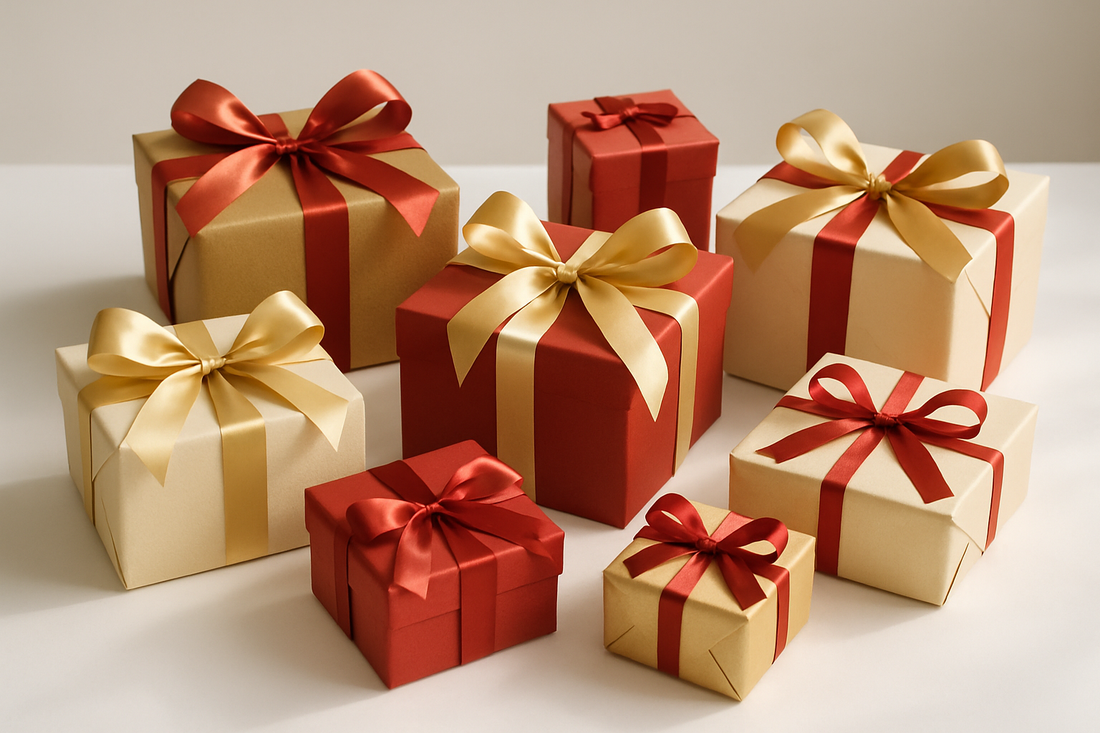Will Gifts Be More Expensive This Christmas 2025 Because of Tariffs?

As the holiday season approaches, many shoppers are asking: Will tariffs make my Christmas gifts cost more this year? The short answer: probably yes, in many cases — but not necessarily across the board. Let’s break down why, what might mitigate the increases, and how you can plan ahead for Black Friday and holiday shopping without breaking the bank.
What Are Tariffs, and What’s New in 2025
Tariffs are import taxes placed on goods from other countries, often designed to protect domestic industries or respond to trade imbalances. Recently, several U.S. tariff policies — including blanket “reciprocal tariffs,” increased duties on steel, aluminum, and certain Chinese imports — have raised costs for imports used in consumer goods. (Wikipedia)
These changes affect everything from electronics and toys to home decor and apparel — items that are commonly given as gifts. Some companies have already announced planned price hikes (or indicated they’re considering them) in response. (People.com)
Arguments For Higher Gift Prices
Here are the reasons many analysts and businesses believe gift prices will rise this season:
-
Increased Import Tariffs Raise Costs Upstream
Suppliers who rely on imported materials or finished goods may pay more in tariffs or duties. These added costs often get passed down the supply chain to retailers and ultimately to consumers. (Investopedia) -
Reduced Inventory and Earlier Shipping
Because of tariff uncertainty, many retailers have already started bringing in products earlier to beat upcoming tariff rate hikes. This leads to increased storage costs and handling fees — costs that can partially land on consumers. (AP News) -
Persistent Inflation & Inflation Expectations
Tariffs aren’t the only pressure — inflation in labor, shipping, fuel, and raw materials amplify cost increases. When many cost inputs go up, product prices generally follow. (McKinsey & Company) -
Surveyed Suppliers Plan Price Increases
A number of suppliers, especially in toys & games, report plans to raise prices by 5–10% due to tariff pressure. Retailers often absorb some of this but not all. (Investopedia)
Arguments Against Big Price Jumps (or at Least Mitigation)
On the flip side, there are reasons to believe that while price increases are likely, they may not be uniformly large, and some shoppers may not notice huge jumps:
-
Tariff Pauses or Adjustments
Some tariffs have delays, temporary grace periods, or partial exemptions that allow importers to bring in goods under the older (lower) duty structure. These windows allow retailers to minimize cost increases. (AP News) -
Competition and Margin Compression
Many retailers face strong competition. In categories where margins are thin (e.g., mass-market toys, electronics), retailers may absorb some tariff costs rather than pass fully to consumers, to avoid losing market share. -
Consumer Behavior for Value-Hunting
As McKinsey and PwC data suggest, consumers are increasingly looking for value, buying earlier, trading down (choosing less expensive brands) or selecting fewer, more meaningful gifts. This behavior can reduce margin pressure or shift buying toward items less impacted by tariffs. (McKinsey & Company) -
Sourcing Adjustments
Companies may shift supply chains (use domestic suppliers, nearshore partners, or low-tariff countries) to avoid high tariffs. While this transition can come with cost, over time it may reduce exposure to large price hikes.
So, Will Your Christmas Gifts Cost More?
Putting it all together:
-
Yes, many gifts will cost more relative to 2024, especially those heavily reliant on imported materials (electronics, branded toys, certain accessories).
-
No, not everyone will see dramatic increases, depending on what you buy, when, and from whom.
-
The magnitude of price hikes (5–15% in many sectors, per some supplier data) is plausible for many imported consumer goods. (Investopedia)
Best Gift Stocking Policy for Black Friday / Holiday Season
To protect yourself from tariff-driven price spikes and supply chain disruptions, here’s a recommended policy for stocking gifts and shopping smart:
| Strategy | Description | Benefits |
|---|---|---|
| Start buying early (late summer / early fall) | Secure popular or imported-heavy items before tariff windows or shipping delays. | Avoid last-minute price hikes. More selection, better stock. |
| Diversify gift types | Mix high-import goods (electronics, toys) with locally made or domestic products. | Reduces exposure to import cost volatility. |
| Use staggered restocking | Order in batches rather than all at once. | Helps manage cash flow and avoid having too much of one product under high cost. |
| Lock in prices, when possible | Use retailers or brands with price-holds, pre-Black Friday deals, or early bird promos. | Reduces risk of surprise price jumps. |
| Watch for tariff policy changes | Keep up with news (tariffs announced, paused, or delayed) to time purchases. | Enables timing purchases to lower-tariff periods. |
| Budget gifts & gift cards | Use gift cards or experience gifts (local services, digital) that are less susceptible to import tariffs. | Offers meaningful gifting with likely less cost inflation. |
| Lean into sales & promotions | Black Friday, early promotions, flash-sales. | Allows capturing value. Make wishlists, monitor prices. |
Bottom Line
-
Gifts are likely to cost more this Christmas 2025 because of tariffs, inflation, and tighter supply chains.
-
The degree of price increase depends heavily on product category, retailer sourcing, and when you buy.
-
By planning ahead, buying early, diversifying what you gift, and watching tariff developments, you can limit how much more you spend.








